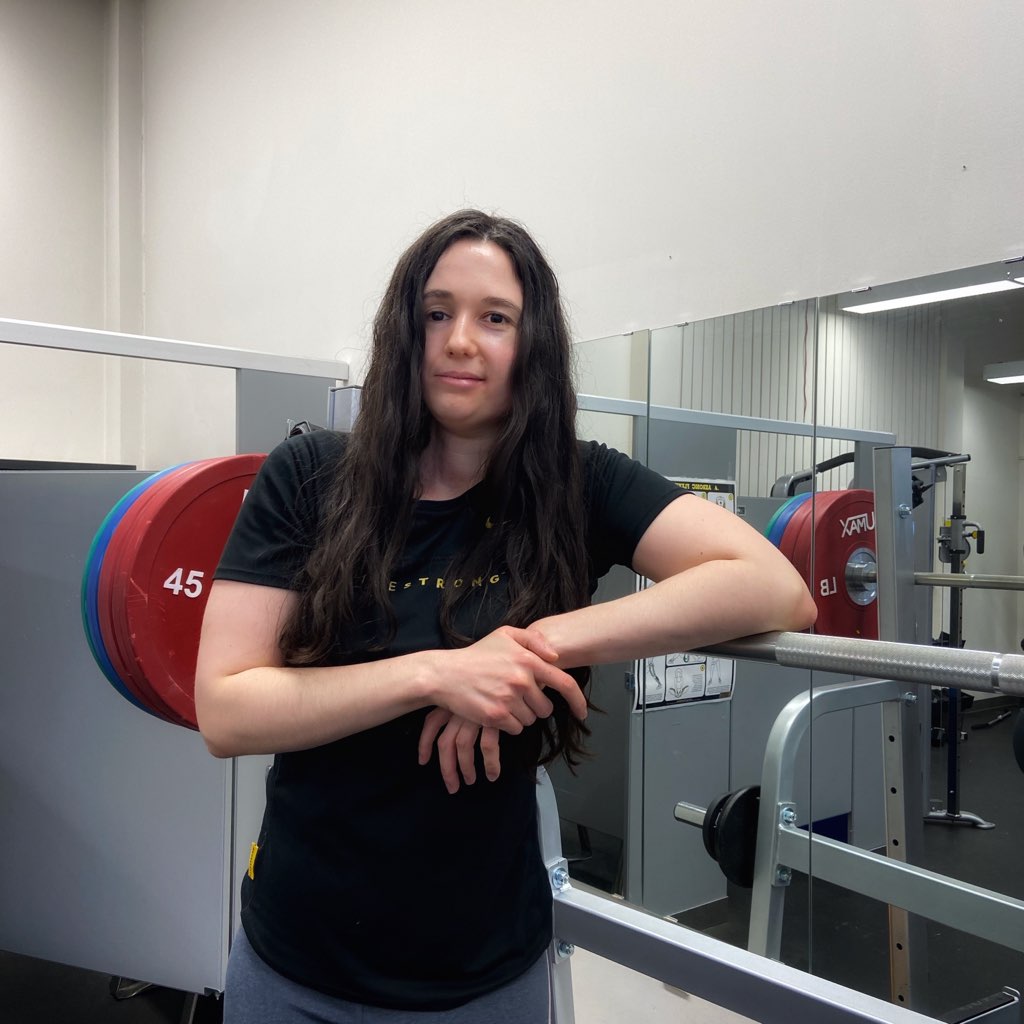Convocation Spotlight: Stephanie Ntoukas
3 June 2022
 Stephanie Ntoukas moved across the country to pursue graduate studies at the University of Alberta. Despite not knowing anyone in Alberta, she was excited for her new journey and says it was one of the best decisions of her life.
Stephanie Ntoukas moved across the country to pursue graduate studies at the University of Alberta. Despite not knowing anyone in Alberta, she was excited for her new journey and says it was one of the best decisions of her life.
Today, Ntoukas is graduating with her MSc from the Faculty of Kinesiology, Sport, and Recreation, where she worked with Dr. Kerry Courneya in the Behavioral Medicine Laboratory studying exercise and cancer. The head and neck cancer survivor says combining her medical experiences and love for exercise into a career has always been a goal.
Ntoukas was diagnosed with mucoepidermoid carcinoma of the parotid gland in infancy — only the fifth child in the world to be diagnosed. At the time, there was minimal research and resources available and post-surgical interventions did not exist.
“Nobody else should experience the side effects that I have and the feelings of not knowing where to turn,” she says. “Hopefully I can inspire others with my life journey while learning along the way. Nothing is more powerful than when the patient becomes the researcher or doctor.”
What drew you to this area of study?
As a three-time survivor of head and neck cancer, diagnosed during my infancy almost 30 years ago, and again in my early 20s, all I know is life during and after cancer. I deal with the side effects of cancer and treatment on a daily basis. I am passionate about strength training and powerlifting.
Being able to combine my medical experiences and love for exercise into a career was always a dream of mine. In this graduate program and beyond, I will continue to support cancer patients and survivors like myself, while contributing to scientific knowledge. My goal is to minimize the side effects experienced by head and neck cancer survivors post-treatment and be involved in creating exercise guidelines.
What moment are you most proud of?
I am proud of myself for making the move across the country and living alone. Although I was really unsure about what to expect, coming to U of A was one of the best decisions of my life. I also give myself a lot of credit for successfully conducting my MSc project during the pandemic – an in-person, supervised exercise trial involving head and neck cancer survivors with a novel powerlifting component.
What was the biggest challenge you faced?
There were two challenges that I faced during my program. Social isolation as a result of the COVID-19 restrictions and not knowing when I would be able to travel internationally exacerbated my feelings of uncertainty. Most of my family and friends live in Ontario, so missing out on holidays and social gatherings was definitely a challenge. It helped to reach out to loved ones and maintain some kind of routine.
What comes next in your academic journey?
I am now enrolled in the PhD program in the Faculty of Kinesiology, Sport, and Recreation here at the U of A and am continuing to pursue my research in exercise oncology. I haven’t developed my primary project yet, but it will likely focus on the head and neck or adolescent and young adult cancer populations. I’m also going to California this year for a conference. I’m looking forward to my first international trip in over three years and to connecting with others in the field from all over the world.
What advice would you give to new graduate students?
First, always be willing to learn and connect with others inside and outside of your field. You will meet many people from all walks of life during your studies. Seek out opportunities to attend conferences, serve as a co-author on publications, ask difficult questions to experts and learn from criticism whenever possible.
Second, develop a primary research project that you are truly passionate about. Do not enter this field just to obtain a degree.
Lastly, the most important piece of advice is to maintain a work-life balance. Remember, life's most memorable moments and valuable lessons are discovered outside of the classroom.